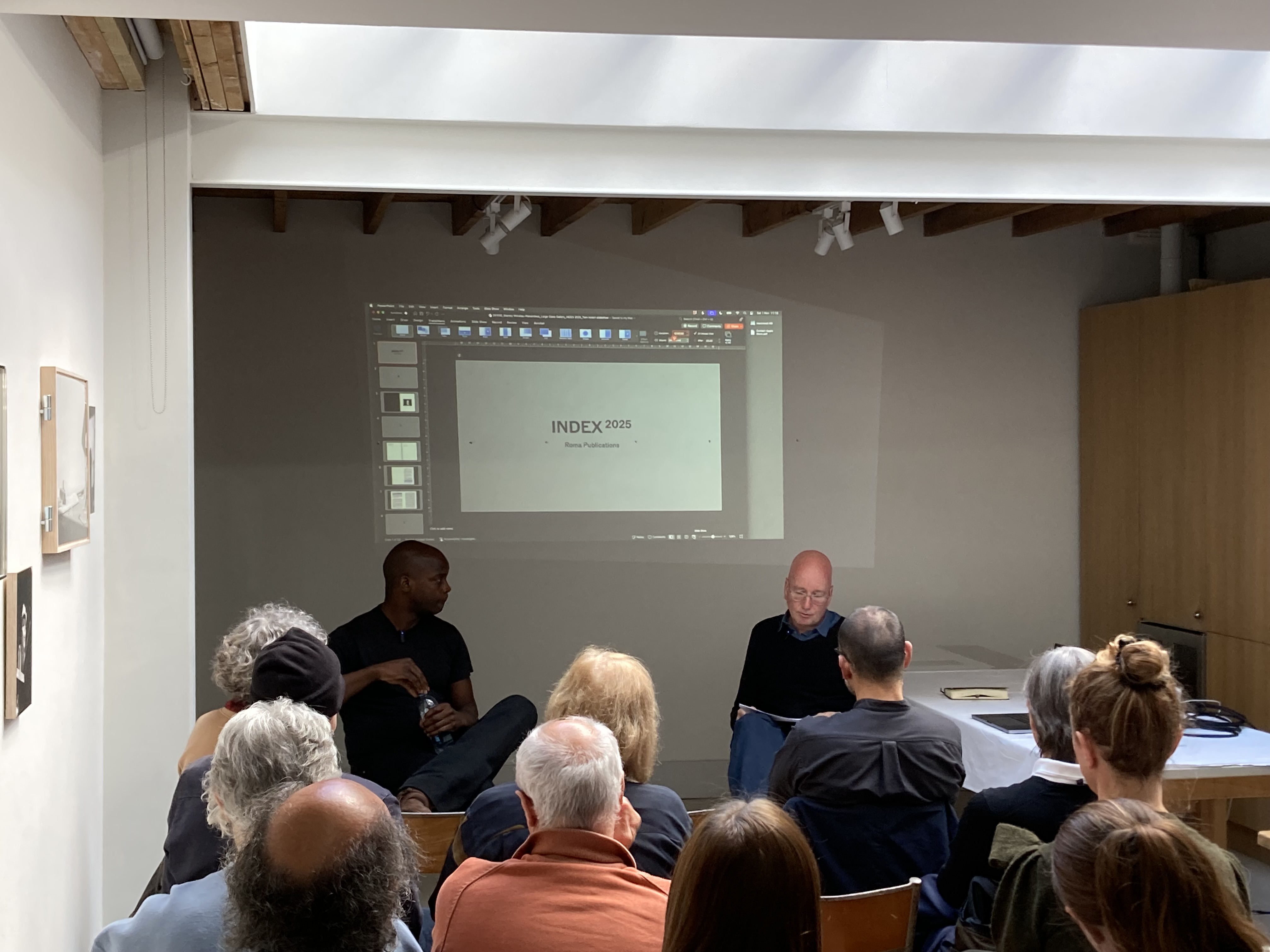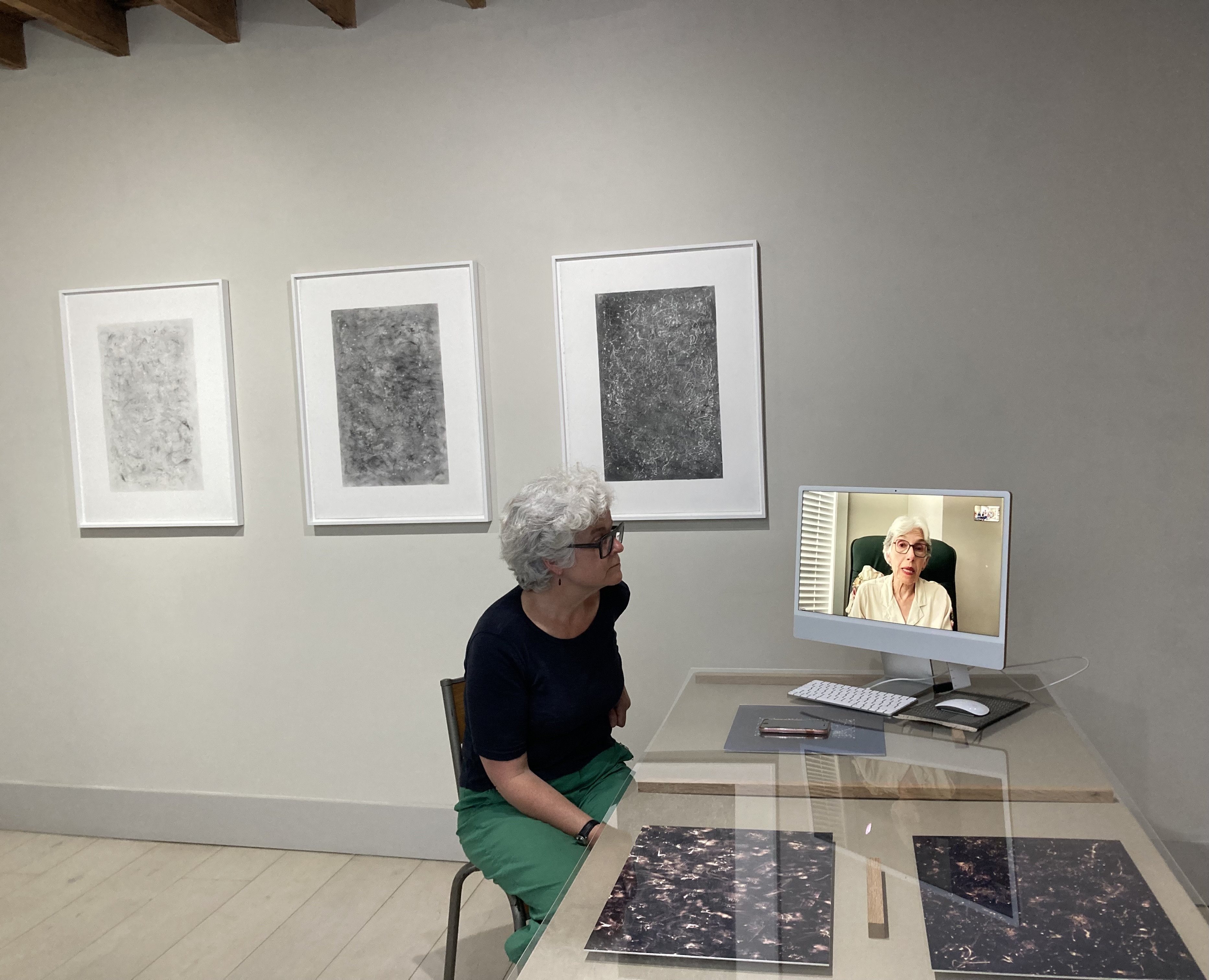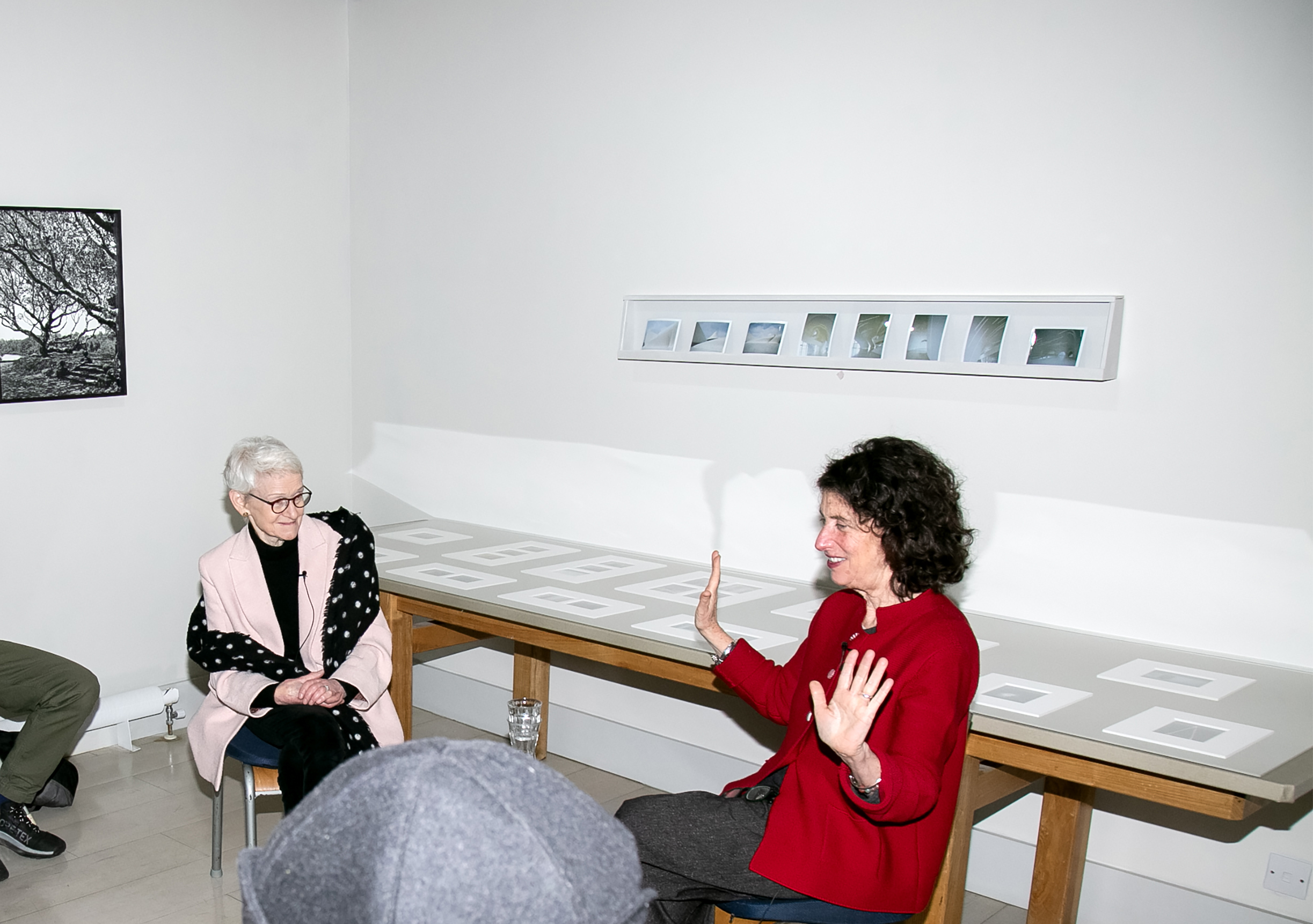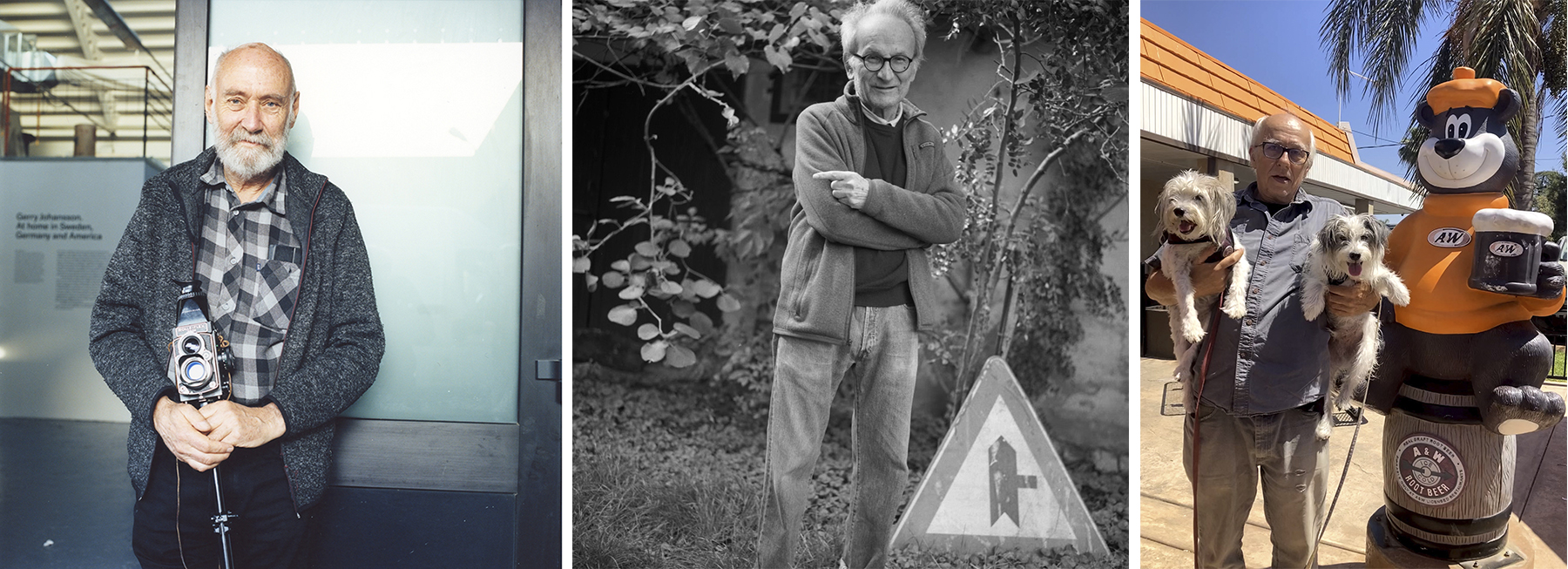 Left to right: Stanley Wolukau-Wanambwa, Tom Holert
Left to right: Stanley Wolukau-Wanambwa, Tom HolertIn conversation Stanley Wolukau-Wanambwa with Tom Holert
01 November 2025Artist, writer and editor Stanley Wolukau-Wanambwa was joined in conversation with writer and curator Tom Holert, to discuss Wolukau-Wanambwa’s recently published INDEX 2025 (Roma Publications), shortlisted for the Photobook of the Year by the Paris Photo—Aperture PhotoBook Awards.
To listen to the audio recording, click here
To listen to the audio recording, click here
︎︎︎ ︎︎︎

Kate Bland, Dava Sobel (on screen).
Cosmic evening with Dava Sobel
10 July 2025A midsummer celebration of Alison Turnbull and Emma McNally’s works in the exhibition ‘The Edge of Forever’. With a reading from Carl Sagan's Cosmos by Dava Sobel (teleporting herself to London), amongst other cosmic delights.
Dava Sobel is the author of several books about the history of science, including Longitude, Galileo’s Daughter, The Glass Universe, and, most recently, The Elements of Marie Curie.
Dava Sobel is the author of several books about the history of science, including Longitude, Galileo’s Daughter, The Glass Universe, and, most recently, The Elements of Marie Curie.
︎︎︎ ︎︎︎

Left to right: MaryAnne Stevens, Hélène Binet. Photo: Emma Boittiaux
In conversation:
Hélène Binet with MaryAnne Stevens
27 January 2025
A conversation between Hélène Binet and MaryAnne Stevens.
They were discussing Hélène Binet’s work within her exhibition ‘Oscillations: From Villa Saraceno to Lunuganga Garden’ at Large Glass.
MaryAnne Stevens is an independent art historian and curator. She was Director of Academic Affairs, and, served as Acting Secretary at the Royal Academy of Arts.
To listen to the audio recording, please contact the gallery.
They were discussing Hélène Binet’s work within her exhibition ‘Oscillations: From Villa Saraceno to Lunuganga Garden’ at Large Glass.
MaryAnne Stevens is an independent art historian and curator. She was Director of Academic Affairs, and, served as Acting Secretary at the Royal Academy of Arts.
To listen to the audio recording, please contact the gallery.
︎︎︎ ︎︎︎

Left to right: Emma McNally, Susan Morris, Michael Newman and Toby Christian. Photo: Emma Boittiaux
A conversation between Michael Newman, curator of After Mallarmé and participating artists Toby Christian, Emma McNally and Susan Morris.
The conversation took place in Part 2 of the exhibition ‘After Mallarmé, ...contingency, the operator…’. They were discussing contingency and chance, within each of their practices and how the work of art becomes an 'operation'.
Michael Newman is Professor of Art Writing in the Art Department at Goldsmiths, University of London.
To listen to the audio recording, please contact the gallery.
The conversation took place in Part 2 of the exhibition ‘After Mallarmé, ...contingency, the operator…’. They were discussing contingency and chance, within each of their practices and how the work of art becomes an 'operation'.
Michael Newman is Professor of Art Writing in the Art Department at Goldsmiths, University of London.
To listen to the audio recording, please contact the gallery.
︎︎︎ ︎︎︎

Left to right: Gerry Johansson (photo by Guido Guidi),
Guido Guidi (photo by Gerry Johansson),
Mark Ruwedel (photo by Mark Ruwedel).
A conversation between Gerry Johansson, Guido Guidi and Mark Ruwedel, moderated by art historian Andrea Mattiello.
The conversation accompanies the exhibition ‘Stepping Stones: Three Photographic Journeys’, co-curated by Jean-Paul Deridder, on display at Large Glass until 10 November.
‘Stepping Stones’ comprises three series of work by each of the artists: Motel Prints (1983), realised by Gerry Johansson during his coast-to-coast trip from Los Angeles to New York; Guido Guidi’s In Sardegna (1974), a body of work from his travels around the island of Sardinia, taken on his honeymoon; and Mark Ruwedel’s Ice Age series (1995-2003), which he describes as ‘a study of human activity in the context of the Pleistocene lakes’.
Andrea Mattiello has published and lectured on Medieval, Modern and Contemporary Art, Photography and Architecture, queer art in Antiquity, female agency in Byzantium, and Greek-Italian Humanism.
This conversation took place online.
The conversation accompanies the exhibition ‘Stepping Stones: Three Photographic Journeys’, co-curated by Jean-Paul Deridder, on display at Large Glass until 10 November.
‘Stepping Stones’ comprises three series of work by each of the artists: Motel Prints (1983), realised by Gerry Johansson during his coast-to-coast trip from Los Angeles to New York; Guido Guidi’s In Sardegna (1974), a body of work from his travels around the island of Sardinia, taken on his honeymoon; and Mark Ruwedel’s Ice Age series (1995-2003), which he describes as ‘a study of human activity in the context of the Pleistocene lakes’.
Andrea Mattiello has published and lectured on Medieval, Modern and Contemporary Art, Photography and Architecture, queer art in Antiquity, female agency in Byzantium, and Greek-Italian Humanism.
This conversation took place online.